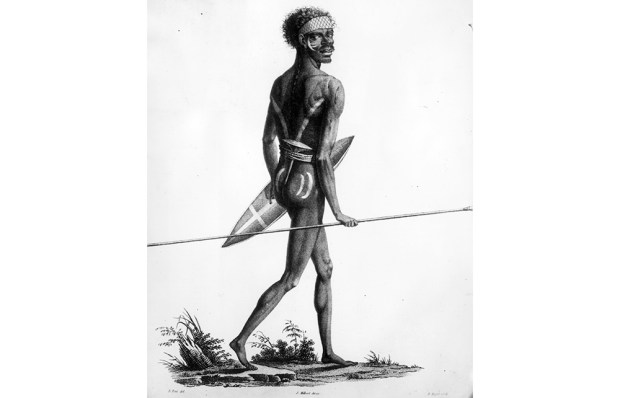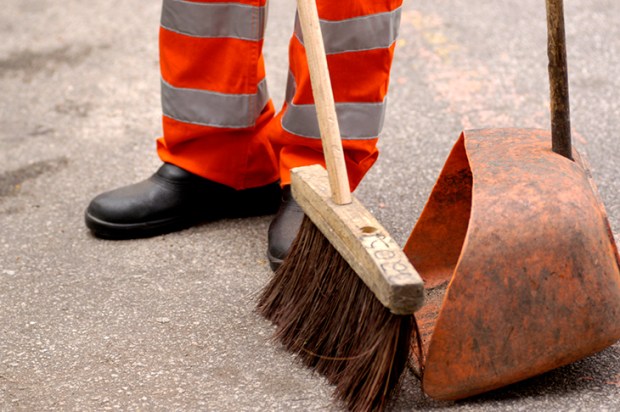Not very long ago, the propensity of some Australians to sit around watching other people do things on screens rather than getting up and doing things themselves was so frowned on that the government ran ads about it. And like much advertising which uses humour to make a serious point, the ‘Life. Be in it.’ campaign of the 1970s and 1980s was both popular and effective. Yet despite the persistence of the problem which Norm, the (insufficiently) animated, armchair-filling star of that campaign personified, today’s government would hesitate to bring him out of retirement for fear of being accused of fat-shaming. But they should get over that fear. Because it’s becoming increasingly clear that being a nation of couch potatoes has an upside, and that one day we may even have cause to be grateful to what I have previously described in this column as The Swollen Generation.
I’m talking, of course, about ‘esports’, the latest addition to the long list of activities in which this country can claim to ‘punch above its weight’. For the benefit of older Australians who don’t get out much, esports is now the recreation of choice for younger Australians who, er, don’t get out much. Which is to say it’s just another word for video games, the playing of which, according to its detractors, no more deserves to be called a sport than does hitch-hiking, which at least requires the movement of arms as well as thumbs. But like those who dismissed heliocentricity as madness in the 15th century, and like those who dismissed the internet as a fad 20 years ago, those who write off esports as a nerd niche should brace themselves for the facial accommodation of large quantities of egg. Because, with one obvious if unmentionable exception, ‘gaming’ is now the single most popular solo pastime in the developed world. It is also the only internationally competitive activity likely to have a bigger global audience in 2024 than the Paris Olympics. An audience, moreover, which is expected to grow so big that rather than just conferring Olympic event status on esports, as they did with skateboarding (the thing young people did before they had video games), the IOC has launched a separate, annual Olympic Esport Series, the first of which will be held next year in that bastion of fair play and egalitarian rivalry which we call Saudi Arabia. And we can be quietly confident Australia will be a major medal contender there. Because no less than four Australian gamers are currently ranked in the world’s top 20, the best of them, a 21-year-old who goes by nom de pouce of ‘ana’, the winner of over a staggering $6 million in prize money.
As is the case with all sports, of course, for every gamer good enough to turn pro, there are thousands of quite competent ones who’ll never make a dollar. But as from this year some of them will at least be able to put their talents to the service of their country. The long overdue decision of the Albanese government to spend a significant portion of its newly increased defence budget on American Switchblade drones won’t just fill a yawning gap in our national arsenal. It will also help to resolve what is now the ADF’s single biggest HR problem; recruitment. In the last two world wars we fought in there was no shortage of volunteers. The vast majority of young Australian men back then didn’t think twice about risking their lives to defend the country they’d grown up in. Even in times of peace, it’s not so easy to find such young men in a land they have grown up believing their ancestors invaded in order to create a society they should now be ashamed of. And even if there are such men, it would be hard to convince them to travel to foreign shores to kill our enemies if they know that doing so is likely to get them branded a war criminal. Fortunately, thanks to the foresight of the Albanese government, the successful prosecution of the next war which Australia fights in won’t depend on things like patriotism, physical fitness and courage. It won’t even involve putting thousands of our young men and women in uniform and sending them overseas for many months. It will just involve putting a few hundred really good gamers in a few suburban bunkers and offering them cash prizes for the highest scores. And you don’t have to take my word for that. Now that he’s home you can ask Julian Assange.
Got something to add? Join the discussion and comment below.
You might disagree with half of it, but you’ll enjoy reading all of it. Try your first month for free, then just $2 a week for the remainder of your first year.














